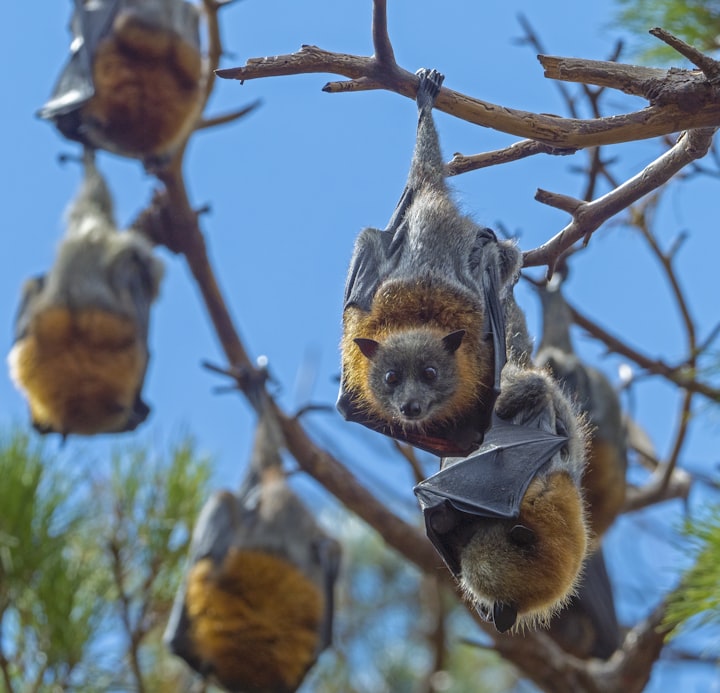Extreme Violet
He had to be there for his boy, even if it meant turning back the clock a few centuries!

At least with me, he would claim, you know I’ll always be right on time, and as his colleagues got to know Pete better, they learned the truth of this claim. A genuine knack for arriving at every important meeting, every social occasion and life’s decision with energy and focus to spare, seemed to be an important part of his arsenal of skills. It must have always been the case for him; nobody could ever recall Pete Anholts missing what mattered, at work or at home.
It served him again, as he pulled up in his rental car to the athletic field. It was situated behind Kemp High School, at the end of a shaded cul-de-sac. “Middle-class” dwellings faced the building, on three sides; two city blocks distant, a major boulevard provided an ambient whoosh of traffic in the air, though it was hardly major by major urban standards.
This was the ‘Commonwealth’ of Massachusetts. It was not Boston. This local burgh answered to the name of Scriven. It was not a place he ever expected to find himself visiting even the once, let alone, on a recurring basis; but life, as he well-knew, was a wild animal. Even this animal could not make him late, for a very important date—
They overestimated him, of course; it was only human of them to do that. One’s admirers tended to ascribe qualities of greatness to a well-regarded person. His seeming goal was to leave the impression of effortlessness in his activities, like the suave fellow, from Playboy magazine and James Bond movies, that he projected himself to be. In the year then identified as 1964, he plowed a swath through the bachelorettes who crossed his path in New York City, wherein the most prestigious advertising agency saw fit to employ him at a salary that was, appropriately, for the Space Age, sky-high.
His job in advertising was, as they say, a cover for his true mission. Nothing of a nefarious nature; it was scholarly research, in the field, as it were. He kept an address and telephone book filled with the contact info of an expanding cast of lovely characters who made his lonely nights far less lonely — and they, too, underestimated his need for distance and secrecy. Then one night at a swanky cast party for an off-Broadway show, he refilled a drink for a twenty-two-year-old named Earnestine Hough, and the address book was suddenly put on the inactive list. She worked as a fact-checker for a major publishing house, but a startling fact about her newest beau was one he dared not share: while he gave his age, truthfully, as thirty-one, he had not been born in the current century.
Despite his reluctance to tie himself down emotionally, he found Earnestine’s charms an unlikely narcotic to which he grew addicted in record time. Then a turning point in his career did double duty as one for their relationship. He was forced to remain, in New York of 1967. After a zany career of wooing and abandoning single women, on both sides of the Atlantic, figuring he was about to be recalled “home”, his paymasters back in what he knew as his own world informed him that he had been passed over, a blow to his plans to cut his present ties. It didn’t take him long to decide how best to express his anger at this repudiation by his true employers — the Time Bureau.
He had a ring on Earnestine’s finger before Valentine’s Day had even arrived. Pete Anholts, the ‘scourge’ of the single-lady set, was limiting himself to only one lady, no longer single. By year’s end, this surprising twist led to another one: his new wife was showering another male with her best affection, and Pete couldn’t hope to compete with towhead Barry, nor did he even want to try to do so. The new man in his wife’s life was, after all, their newborn son.
^^^^
Game night felt all wrong, ever since Barry noticed that old man seated up in the bleachers. Well, maybe not wrong; the geezer didn’t seem dangerous — he came across as, well, kind of goofy, with the heavy sideburns and mustache, a relic of the early Seventies. “Bet he must have really slayed with them ladies,” his girlfriend Vera remarked, when she could be bothered even to address his concerns, “about a million years ago.”
Barry’s hair had changed its hue, over the years since his birth, from platinum blonde to a sort of light brown. He was not crawling on the kitchen floor these days; in the present year, which locals numbered 1984, he was scurrying over the athletic field as a member of the Kemp High soccer team. It was his junior year, and his father’s hustling and bustling in the Big Apple seemed like it was a thousand light-years away, or at least, a thousand years away. Earnestine, a surprising enthusiast for what the rest of the world called ‘football’, was front and center to cheer on her son at every game, as was her second husband, the equally enthusiastic Mario Agostini, a firefighter, and devoted stepfather. This last bit was Barry’s default device to irritate Pete, when his father would come to Scriven to spend quality time with his growing boy, minus his ex-wife.
“Must be someone’s grandfather,” said Barry, as if it was more thought than he wished to devote to the subject. Vera waited for something more to spring out from his preccupied mind, then dug into her backpack to find a cassette tape. Unlike their peers, who blasted Duran Duran or Cyndi Lauper from their cars or boom boxes, Vera preferred older artists, such as Carole King, whose album Tapestry was her favorite recording, or Joni Mitchell, whose Court and Spark ranked a close second. This made her seem uncool to their close friends; she didn’t mind one bit, and Barry added respect for her independence to the list of her admirable qualities that he compiled in his mind, day after day.
They had almost made it to her car, well, the one her parents let her drive, as other players and their families were preparing to head home, after another successful game. Kemp’s team had won, again, thanks in no small way to the yeoman efforts of Barry, again. Someone was noticing his efforts, as it turned out—
The old man stood beside their car. It did not make sense that he would know which car they drove. Barry sized him up and almost immediately relaxed; no way this senior citizen posed much of a risk to strapping young athletes, their girlfriends, or pretty much anyone else. Besides, Mario was tough as leather, and he was waving to his stepson and Vera from a few paces the other way. “I just wanted to say, kid, that I think you played one hell of a game tonight,” the geezer said. His voice was not that of a sickly, decrepid dude at all, Barry was quick to notice. Maybe he was younger than he looked? No; that was stupid.
Vera idled up behind Barry and favored the old man with a warm smile. “Are you here to cheer for your grandson, sir?” she asked. “Or did you become a… father at a later age?”
“Earlier age, in my case,” the old man said, with a peculiar glimmer of intrigue in his gaze. “I’m rooting for my son. I’m attending games I missed. I made him a promise that I would attend all of his games, even if I had to come a long way to be here. I forgot to make it a few times, so I’m making up for them now.”
“Wish my dad would keep his promise,” Barry admitted, searching the crowds as families moved past them on both sides to their waiting cars. Then it struck him: How do you attend a game that’s been played already?
Spring and summer and autumn rolled by once again. Barry turned seventeen in November. The old man came to some of the games, but not to others. Odd, therefore, that Barry’s father managed to show up instead, more often than he did in the preceding school year. Pete was paid enough to afford to rent a plane to fly him up from New York each Friday for the soccer games; he usually stayed a night in a local motel, and spent his father-son time with Barry, trying his best to be more interested in what the boy had to say.
^^^^
Pete was interested, to put it mildly, to learn that his son had a codger for a fan. Earnestine thought it was probably harmless, but she added, “Maybe, if it’s okay and you don’t mind, you could meet the guy and you know, let him know we’re attentive parents, Pete. I don’t want to hear Mario’s put some old man in a hospital, because of a… misunderstanding.”
Pete agreed to this, despite having a gnawing suspicion that he already knew the identity of this elderly high-school sports enthusiast: another Bureau historian. He arrived an hour before the game, determined to drive Barry and Vera to the game in his rent car, and took his son aside. “Don’t think you have much to worry about, Bear. It happens, when you get old. He’s probably lonely. I’m so glad I don’t have to worry about that for a long, long time.” He flashed his ladykilling grin, but it had no effect on Barry, who scowled for a minute.
Then, the kid lit up as if struck by inspiration. “I’ve been talking with the guy,” he said. “You know, after the game. He said something funny, like ‘What if you could travel in time — would you go do the things you didn’t do, the first time?’ I said I guess so, yeah. Is that him being lonely talking? Hey, Dad, you look —”
"It might be just the right thing,” Pete said. “Come on, let’s get Vee, and head over.” The entire trip to her house and then to the athletic field, he seemed more of a space case than Barry had known him to be for the past few years. He seemed to make a conscious decision to brush off something troubling. Instead of it irritating him, his father’s ‘elsewhere face’ worried him.
No sooner did they reach the parking lot, than Vera pointed out the old man, on the far edge of the field, making polite conversation with some of the other parents. Pete put the parking brake on with sudden vehemence, saying to his youthful passengers, “One brief conversation, coming up,” with more anger in his voice than he had intended to convey. He stormed off, across the field, and was about to tap the old man on the shoulder, when the latter turned to face him. Whatever he said, Bary and Vera could neither see nor hear, but it was an instant, no longer, before Pete turned away and walked back to the car.
Vera waved to two of her best friends and ran ahead, letting Pete and Barry talk. Barry yelped, “Dad, what did you say to him? What did he say?" His father had blanched. "You look like… it was okay, wasn’t it? Is everything all right?”
“It is now, yeah.” Pete put his hand on his son’s shoulder as they walked. Barry could feel his father’s hand trembling. “‘Extreme violet’,” Pete added. “That’s all he said. All he had to say. Then I knew I had him figured out, and he… I?”
“What does that mean?” Barry wondered. “Does it mean flowers, or like, is it a reference to light?”
“Both, oddly enough.” Pete sighed, slowing down as they reached the field. “In the spectrum, violet is the longest color, almost invisible. Reminds me that I’ve been almost invisible to you, for the longest time, almost UV, like a black light. I said I would make your games, every one." His smile was intended to either amuse, or reassure, his son, but Barry just gaped. "I’m here now, so ‘he’ doesn’t have to be, I guess. I missed many of them, but I seem to have kept my promise.”
© Eric Wolf 2022.
[Exploring history, ‘Time Bureau’ style: https://vocal.media/fiction/become-your-time-of-day.]
About the Creator
Eric Wolf
Ink-slinger. Photo-grapher. Earth-ling. These are Stories of the Fantastic and the Mundane. Space, time, superheroes and shapeshifters. 'Wolf' thumbnail: https://unsplash.com/@marcojodoin.
Enjoyed the story? Support the Creator.
Subscribe for free to receive all their stories in your feed. You could also pledge your support or give them a one-off tip, letting them know you appreciate their work.






Comments
There are no comments for this story
Be the first to respond and start the conversation.